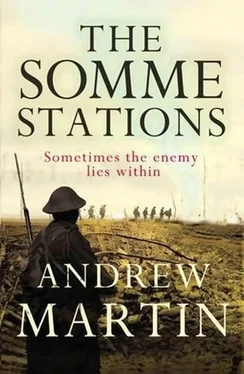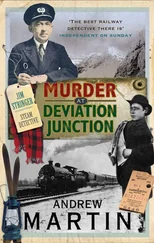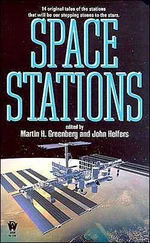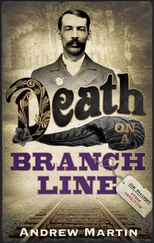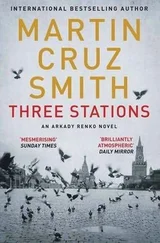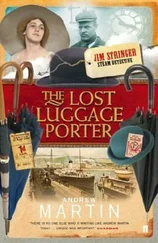In very short order, we were rolling away from the Burton Dump, heading in what was known to the men of the Dump as the ‘Up’ direction: towards the front, and the flashes and screams of the Evening Hate. The tracks put down so far led into the village of Ovillers, what was left of it, then into the more easterly village of Pozières. Ovillers had been captured a couple of weeks before, and while Pozières had lately come into our hands, the Germans hadn’t yet given up on it, and were shelling it nightly, so it was a pretty hot spot to be riding towards. On the other hand I was at last employed in the job I had aspired to since boyhood. (Of course, I should have known that it would come about, if at all, with complications.)
We were now running surrounded by skeleton trees with a look of winter even in late July. The tracks had been put down quickly and roughly, and we were shaking about a good deal. The narrowness of the line gave a heightened idea of speed, and we would seem to rush up to a smashed tree at a great rate before diverting away at the last moment. Tate was giving us a lecture about the engine. It was a Baldwin, built in America; a pretty good steamer, but the high boiler made it unstable and liable to tip over, which gave cause for concern if you might happen to be pulling, say, three tons of high explosive shells, which might become a normal sort of load in time. I looked back over the shaking coal bunker. Dawson sat smoking on the wagon. Oliver Butler stood on the coupling unit at the rear, holding onto the wheel of the handbrake, and not seeming to enjoy the ride over-much. After a while, he returned my gaze, saying, ‘Keep your eye on the road, mate, will you?’
He was exposed to the rain, and he minded that, or perhaps he minded that I had the protection of a cab roof, even if it did extend only halfway across the footplate.
The man Butler…
According to Tinsley, he had been firing from the sap on the first day of the battle. Scholes would have been within his range, and it had seemed to me that he might have taken a bullet before the shell hit. Scholes had threatened to speak out about what he knew – whatever that might be – if Thackeray returned to give him another roasting, and it seemed that Thackeray did intend to return, and we all knew it. Oliver Butler had certainly overheard Scholes’s threat. He’d been standing behind him when he made it.
Might Oamer have heard it as well? He had stepped out of the billet only a moment later – and he too had evidently been firing from the sap.
Thackeray had not yet come to the Dump, but he had been seen about in Albert. Well, Tinsley – sent there on an errand – had seen him, on his horse outside the cathedral, apparently watching every private soldier that went past. Blokes fighting and dying for their country… You’d think he’d lay off…
We were rolling past a bloody great shell crater. The edge of it was about six feet from the tracks, and the rain was trying to fill it.
‘Crikey,’ said Tinsley.
Tate, following his eyes, said, ‘Jerry’s got some pretty big stuff pointed this way.’
‘How close would a Boche shell have to be to set off our load?’ Tinsley enquired.
‘About as close as that,’ said Tate, indicating the crater under discussion. I was glad when we’d left it behind – out of sight out of mind. Except that Tate didn’t drop the subject. ‘You see, our shells don’t have their fuses fitted, but what is a fuse? Heat and air pressure. An enemy shell could easily provide that.’
‘Watch your level,’ I said to Tinsley, because the water gauge was a little low; and he practically leapt on the injector. Tate was nodding in an absent sort of way. I didn’t doubt that he could have driven this engine half asleep, and it annoyed me to think so. Was he really superior, or just of a superior class? After a brief pause he took up his lecture again, all about the difficulty of getting stuff to the front by MT. This stood for Motor Transport: lorries. But Tate preferred to say MT. Horses weren’t in it, and he never gave them a mention. Horses were the past. He hoped to have a dozen trains a night running to the front before long. At this, I thought again of Oamer: he would be returning to the line over the next day or so, minus his finger, and would be joining our detachment at Burton Dump as supervisor of the running office, which would control the movements of the little trains. His experience in the York ticket office fitted him for that role; and his all-round braininess.
We were shaking in a different way now, climbing out of the wood. More coal was needed.
‘Steep hill,’ said Tinsley, swinging his shovel.
‘Now locomotives don’t really go up hills, do they?’ said Tate. ‘I would call that…’ And he thought for a good ten seconds. ‘I would call it a knoll.’
The engine danced in a yet different way, and harsh rumbling came from underneath.
‘Girder bridge,’ said Tate. ‘Would you believe our boys put that up in less than two days?’
I would’ve actually, since the thing moved as we went over it. I looked down and back as we came off it, and saw a demoralised-looking black river that had given up flowing anywhere.
‘The River Ancre,’ said Tate.
It certainly wasn’t up to much. The big river hereabouts was the Somme, but that was off somewhere to the south and I’d never seen it. We went past a wooden post with a sign on it.
‘That was the first of our stations,’ said Tate, facing backwards on the footplate, and looking back at the post with affection. I hadn’t been able to make out the name.
‘Old Station,’ said Tate. ‘We made it ten days ago. There were gun positions either side – behind that hummock, and in that ditch.’ He pointed to shadowy features I could barely see in the dark. ‘Abandoned now, they’ve done their work.’
The noise of the Hate was becoming louder as he pointed over to a wrecked house. The queer thing was that the roof remained, supported by only two and a half walls.
‘Holgate Villa,’ Tate said, grinning. ‘Part of Ovillers, technically.’
I was getting the idea now. There was a Burton at York, also an Old Station. And Holgate Villa was a grand old house that had been swallowed up by the York railway lands, and was used – last time I’d been in there – for storing masses of dusty restaurant car crockery.
I looked back at Holgate Villa. The Verey lights flashing on it – red, green, yellow, flickering red again – and I knew the situation was unstable. I didn’t believe it could be there for too much longer.
We rolled slowly past another post.
‘New Station,’ said Tate. ‘German second line, as was. Gun positions… there!’ And at that instant the gun position in question – out of sight behind a low hill – loosed off a shell. A whistle came from the German side; then another whistle, then the two crumps. In the field next to us, two trees made of mud arose and collapsed. I heard again the steady beat of the engine. Tinsley eyed me, nodding.
‘Steaming nicely,’ he said, in a confidential sort of way.
One hundred and sixty pounds of pressure; faint ghost of smoke and steam over the chimney. Tinsley and me… We trusted the engine to take us through the scrap over Ovillers. But then came another Boche shell, and two more sent over from our side; we were approaching another of the Somme woods, another graveyard of trees. I pulled on the regulator. I would feel a bit safer in the trees, such as they were, but as we closed on them under the falling shells, the engine gave a lurch. Tate crashed into Tinsley, and called out, ‘We’re over!’ But we stabilised the next moment.
‘Track gang missed that spot,’ said Tate.
Our track gang was Andy and Roy Butler – they’d gone ahead in the afternoon to walk the track and make good. We were to collect them at the dropping off point for the goods.
Читать дальше
